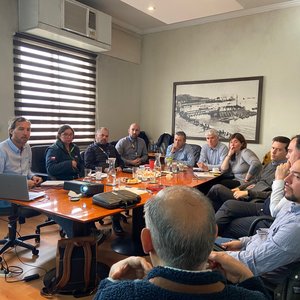The world is entering an era of dramatic change for agriculture, and massive investment in both production capacity and infrastructure will be required to meet soaring global food demand. Speaking to delegates at the U.S. Grains Council's annual Board of Delegates meeting, Mark Zenuk, managing director of NPG Energy Capital Management, outlined opportunities across the board, with special attention to the huge capital investment needed to feed a growing world.
Population and GDP growth have shocked the protein value chain, argued Zenuk, while explosive global growth of the ethanol and biodiesel industries has similarly affected carbohydrate and vegetable oil demand. Keeping up will be a challenge. Even with U.S. corn ethanol growth leveling off as current policy targets are met, farmers around the world will be pressed to achieve the doubling of food production that is required by 2050.
Meeting that challenge will be expensive. The FAO has estimated that developing countries will need over $9 trillion in new investment in agricultural modernization to keep pace. In the U.S., improving crop technology will generate growing surpluses for export markets, but major infrastructure barriers must be overcome. The legacy infrastructure is not sufficient; additional barge and rail, inland storage, processing, and port capacity is needed.
While adequate government investment in roads and inland waterways is essential, private investment will dominate most other sectors. That translates into opportunity. Zenuk outlined a dynamic competitive situation in which rapid capacity expansion along the Pacific Northwest export corridor will be challenged by increased demand through the Gulf ports powered by the expansion of the Panama Canal. Coasting on past achievements will not get the job done. New technologies, new efficiencies, and new investment are needed, and the future is full of promise for those who get it right, and are prepared to act.










